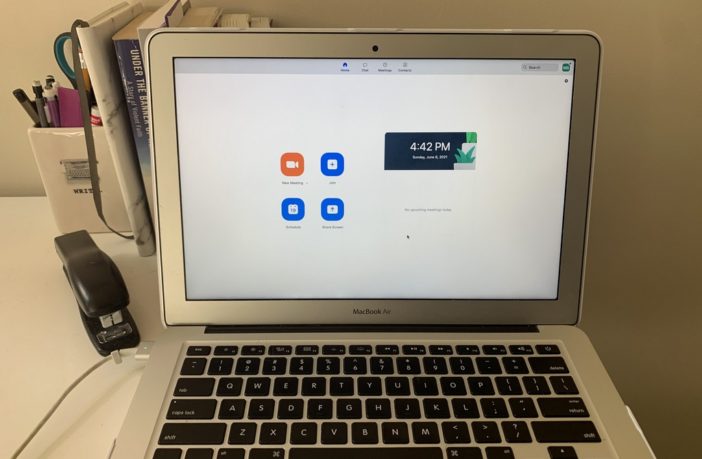oor connection and lack of internet access often caused students to be kicked out of Zoom classroom meetings. The Emergency Broadband Benefit seeks to help remedy this problem. (Photo credit/Megan Sayles)
By Megan Sayles, AFRO Business Writer
Report for America Corps Member
Msayles@afro.com
After Baltimore city schools were forced to shift to virtual learning as a result of the pandemic, it was clear the lack of internet access would be a recurring obstacle to education. Now, the federal government is stepping in to lessen the impact of this issue.
On May 12, the Federal Communications Commission launched the Emergency Broadband Benefit to help households that are struggling to afford internet service. The $3.2 billion program provides a discount of up to $50 per month, and the Baltimore Digital Equity Coalition (BDEC) is spreading the word.
While Director Tia Price wants more people to know about this benefit, she remains cautious. Baltimore’s history of digital redlining was just one inequity exacerbated by COVID-19’s arrival, and Price wants to ensure that communities taking advantage of this program are not left in worse condition than before they had it.
According to Price, before the launch of the benefit, some Baltimore households tried to access low-cost internet options from providers, but were turned away due to credit barriers; unaware these barriers had already been removed in the wake of the pandemic.

Director Tia Price of the Baltimore Digital Equity Coalition. (Courtesy Photo)
“It is important that we do not just market to people, but that we embrace them,” said Price.
As a result, BDEC is trying to make clear who qualifies for the discount and answer any questions surrounding the benefit. Eligible households are those with an income at or below 135% of the Federal Poverty Guidelines, those previously approved to receive benefits under the free and reduced-priced school lunch or breakfast program; households with a substantially diminished income due to job loss or furlough after Feb. 29, 2020; households that participate in assistance programs, such as SNAP, Medicaid, or Lifeline; as well as Pell Grant recipients.
BDEC is also working with Baltimore City Public Schools, which is hopeful that all eligible students and families will take advantage of the opportunity. “This is one more step to level the playing field when it comes to digital access and the education pathways for all students,” according to Baltimore City Public Schools.
Eligible households must contact participating broadband providers, which in Baltimore include Verizon, Comcast, PCs for People and T-Mobile. But, according to Price, households can also apply through the Universal Service Administrative Company, which she recommends over the other providers.
“Access to internet is a basic human right,” said Price. BDEC along with other Baltimore organizations, like Project Waves and Rowdy Orbit, are advocating for a more permanent solution to the technology and internet disparities in Baltimore, which primarily affect communities of color. A 2018 Abell Foundation report cited that while 73.3% of White households in Baltimore City have broadband internet service, only 50.2% of African-American households, and 46.4% of Hispanic households have this access.

Baltimore has not been the only city affected by digital redlining and the digital divide. According to a 2020 report by the Greenlining Institute, Oakland and Fresno, California, are also either unconnected or under connected to the internet because of the costly services. Much like Baltimore, communities of colors and low-income families are affected the most in those cities.
Part of advocating for a more long-term solution to this gap requires ensuring that people who were left out of the benefit this time around can be included in the future, but Price also does not want the sole focus to be about affordable internet or devices.
“I want to focus on inclusion,” said Price. Younger generations as well as adults must be equipped with financial and computer literacy, and they must know how to protect their privacy and data online, according to Price.
Help us Continue to tell OUR Story and join the AFRO family as a member – subscribers are now members! Join here!



